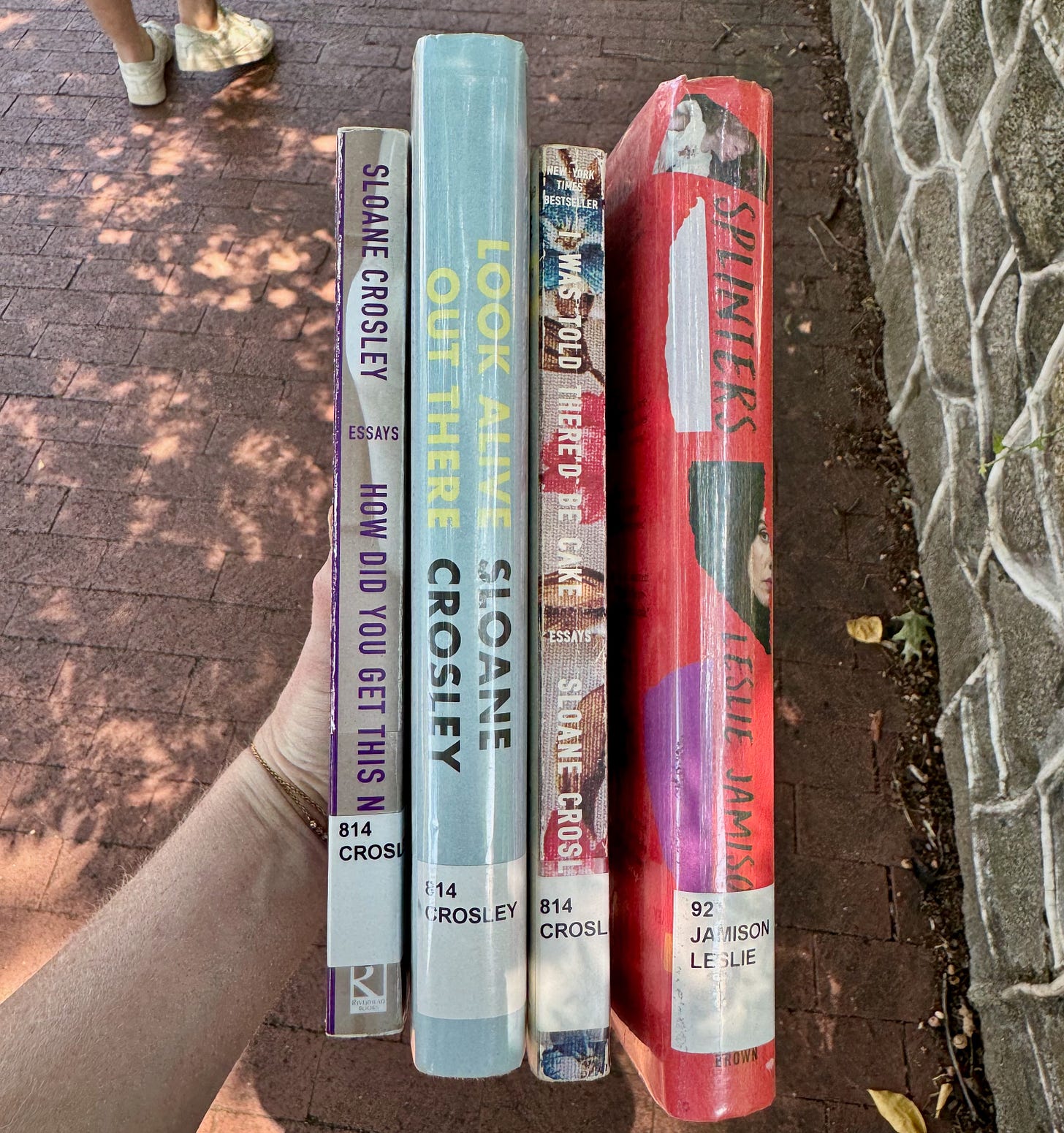everything I read in June
I got my hands on a few library books I'd been waiting months to read and remembered how much I love disappearing into a good historical fiction yarn — even though the one I read was far from perfect.
Lately: I really enjoyed this round-up from New Yorker writers about the classic books that changed their lives. I’m on the library list for “Lonesome Dove” now, and I’m trying to figure out how to get my hands on a copy of “My Life as a Body,” which seems to be available nowhere. … Speaking of the New Yorker: This excerpt from Emily Witt’s upcoming book, “Health and Safety” floored me. … On a wholly different note, I decided to make a basque cheesecake for the Fourth of July and decorate it semi-patriotically. This year, semi-patriotic is enough. … Hey, want to follow my Instagram? Yesterday, I shared a reel about pan con tomate, my favorite mid-summer lunch/snack/dinner.
Here’s everything I read in June …
Books I loved
“Cahokia Jazz,” by Francis Spufford: The story unfolded in my imagination like a 1940s film noir, albeit with quite a few fantastical elements. I was drawn to “Cahokia Jazz” primarily because of my connection to the history it imagined: Instead of dying out in large part from smallpox, indigenous people remained a significant portion of the U.S. population in 1922, when the story unfolds. As a result, the city of St. Louis is a tiny village, and across the Mississippi, the city of Cahokia thrives. There’s a murder, a sinister plot and a hero who fears he’ll never belong in the strange city where he works on the police force. Spufford’s writing — especially about this vivid, made-up place — sings. That’s all I’ll say. Read it — especially those of you who are from St. Louis and have heard all your life about the rise and fall of Cahokia.
“Grief Is for People,” by Sloane Crosley: Years ago, when I was in college, I read Crosley’s debut essay collection, “I Was Told There’d Be Cake,” soon after it came out. I don’t remember much about the essays, but I do remember the feeling I had while reading it, floating on a raft in the pool in my parents’ backyard, unable to tear my eye from the page. Back then, I thought I might want to be a writer, and I knew I wanted to write more like Sloane Crosley did. I wonder if I’ve made any progress between then and now. I also wonder why I didn’t keep writing Crosley’s books.
That changed with “Grief Is for People,” her newest work of nonfiction, which is about Crosley’s reckoning with a one-month period in 2019 when her jewelry was stolen from her apartment and her best friend died by suicide. It’s thought-provoking and beautiful, stomach-churning and laugh-out-loud funny. As soon as I finished, I immediately put Crosley’s three essay collections on hold at the library.
“Slow Horses,” by Mick Herron: Have you watched the show? Watch the show! This is one of the rare instances where I think I recommend watching and then reading. Maybe that’s simply because that’s the order of operations I chose (because I didn’t realize the show was based on a book) — but either way, my argument is this: The story is intricate and very occasionally confusing, and I loved being able to picture it all as it unfolded in print. Also, the show is so, so well-cast. You really, really want to properly picture Gary Oldman as you read.
A nearly perfect novella
“Last Night at the Lobster,” by Stewart O’Nan: The subhead says it all: This book will take you a couple of hours, max, to read, and it will make you feel a whole bunch of things. It’s about the final day of operation of a Red Lobster in a mall parking lot in Connecticut. I went into the story thinking it might be humorous, but it’s not, at least in any kind of traditional sense. Instead, it was just about the most poignant book I’ve ever read.
Good, if flawed, historical fiction
“The Glassmaker,” by Tracy Chevalier: There’s maybe nothing I love more in the realm of reading than disappearing into good historical fiction. And “The Glassmaker” is definitely good. It spurred me to spend an hour on the Internet researching glassmaking and another hour looking at flight prices from D.C. to Venice. But I still wanted just a little bit more from it. The characters weren’t particularly developed, even if the world around them was. And while I thought Chevalier’s one fantastical flourish — you’ll figure out what it is pretty quickly — was creative and worked on a thematic level, I can’t help but think the story might’ve worked better without it.
I sound critical, and I suppose I am. But I also couldn’t put this book down, and I emerged from the fog of reading in a great mood, which counts for something.









Thanks for the book recommendations! Added a couple of these books to Libby and Crosley's debut collection was available, so will read that next.
👏🏻👏🏻👏🏻👏🏻👏🏻